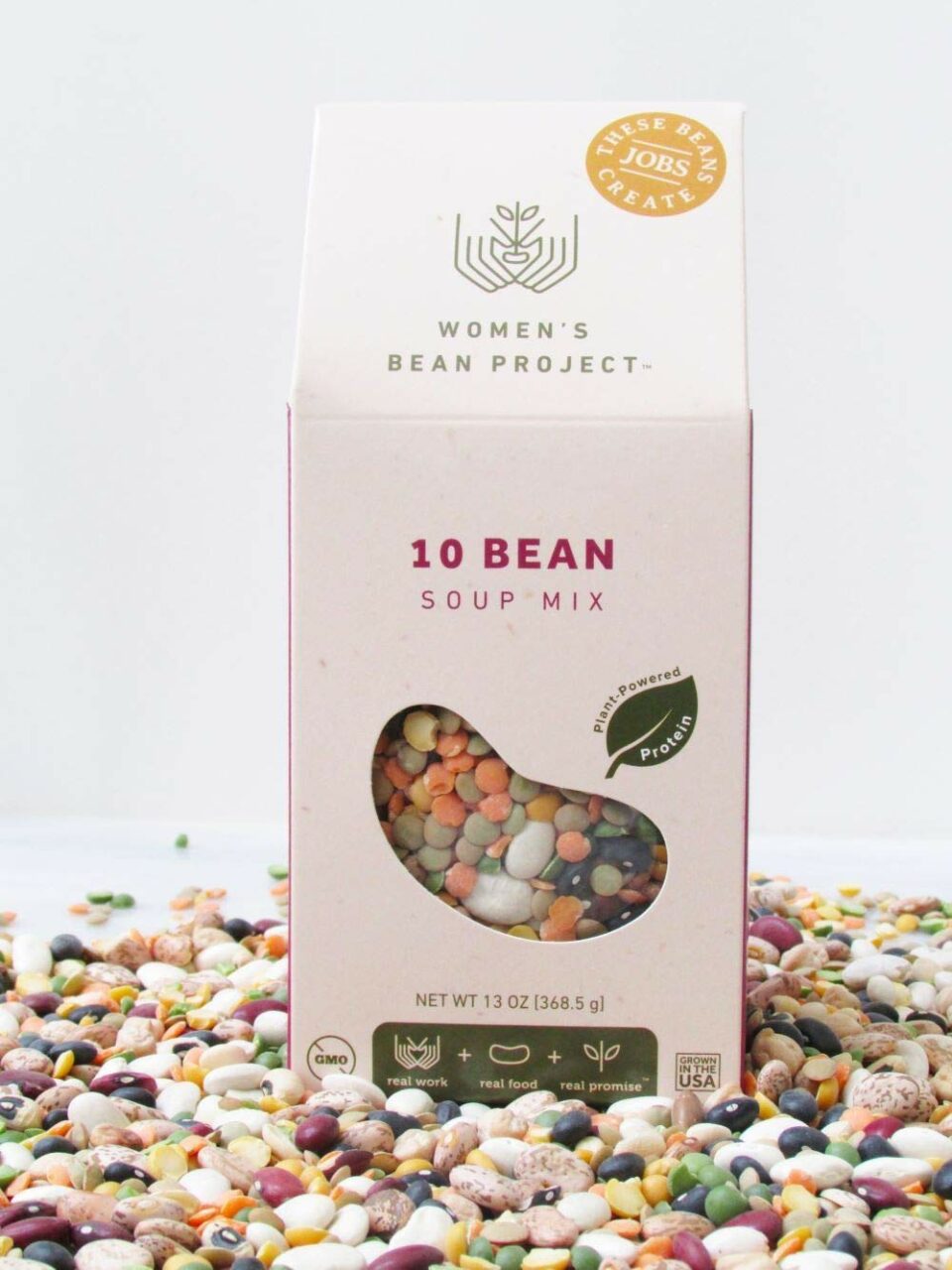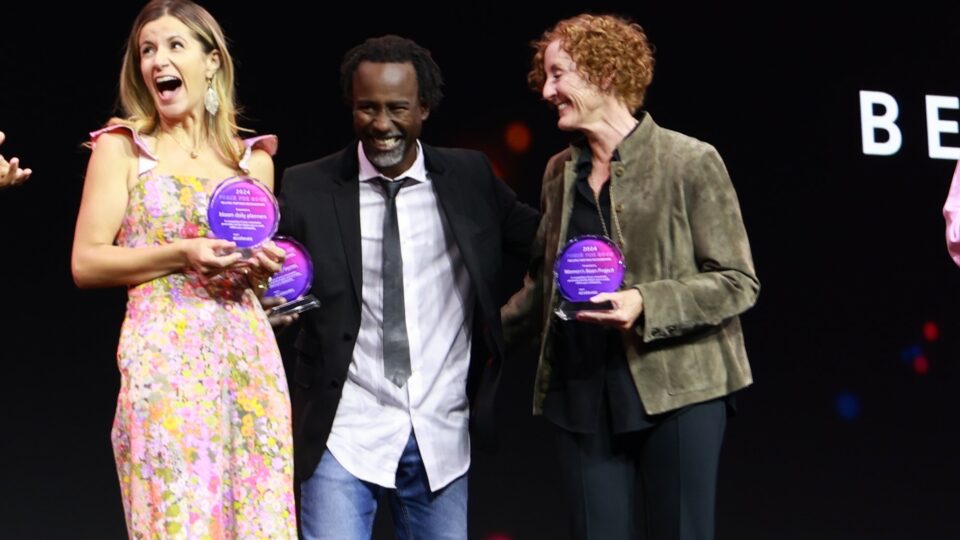This story is part of Retail TouchPoints’ ongoing “Small Business, Big Ideas” series, focusing on smaller retail brands that have found big success and have even bigger ambitions.
Amazon took a breather from the veritable onslaught of tech updates at its Accelerate conference Thursday to shine the spotlight on three specific companies. Just like the thousands of attendees in the Seattle audience, these three businesses are Amazon sellers, but they stand out from that very large crowd because of the social impact of their work.
By now we’re all familiar with the Amazon seller story. It’s been 24 years since the platform made the bold move of opening up its marketplace to third-party business, and countless stories of entrepreneurial success have followed. But beyond touting its role in enabling the success of small businesses, Amazon is now making a concerted effort to showcase the positive impact many of those businesses are having on the world.
While this effort is, in part, pushback against the near-constant criticism that tech giants face these days about their influence and impact, it’s also true. As Dharmesh Mehta, Amazon’s VP of Worldwide Partner Selling Services, pointed out in his opening remarks at Accelerate, Amazon has been a “force multiplier” for many thousands of small businesses and entrepreneurs, and many of those businesses have in turn been a force for good in their communities.
“More than 60% of sales in Amazon’s store are from independent sellers and these independent sellers employed more than 1.8 million people in the U.S. in 2023; that alone is a huge contribution to local communities, and so many of these sellers are doing even more to give back,” said Natalie Angelillo, Director of Seller External Relations at Amazon in an interview with Retail TouchPoints.
To showcase this unique aspect of its business, Amazon brought back its Force for Good program this year, which “spotlights the tremendous positive impact these sellers have in their communities,” explained Angelillo. This year’s three honorees — Papa Rozier Farms, Women’s Bean Project and Bloom Daily Planners — had their businesses showcased during a keynote session at Accelerate, and each received a $50,000 grant to continue their work.
“We were overwhelmed by the numerous sellers doing remarkable work nationwide and wish we could recognize them all,” said Angelillo. “Ultimately, we selected three honorees who truly exemplify going above and beyond their day-to-day work. They are all active members of their communities who contribute through their businesses, solve a community need and continue to use their Amazon businesses to enable their impactful efforts. They champion causes both nationally and internationally, and are boosting local economies in Colorado, Delaware and even Haiti.”
Retail TouchPoints went behind the scenes with each of this year’s Force for Good honorees to learn more about their businesses and how they have leveraged Amazon to support their efforts.
Tapping into Amazon’s Reach to Fund Education, Employment in Haiti
When Rubens Amedee and his sister Fredeline “Freddie” Amedee-Benjamin started Papa Rozier Farms in 2012, he was punching the clock at Goldman Sachs, and she was working as a chiropractor in Florida. But the devastating earthquake that hit Haiti in 2010 shook these two Haitian-born Americans, and they felt compelled to take action. Within three weeks they were on a plane to Haiti to help in whatever way they could.
“We were driving around and one of the first things we noticed was that a lot of this devastation was pre-existing,” recalled Amedee in an interview with Retail TouchPoints. “The reason why the earthquake was so bad was because the infrastructure wasn’t good to begin with. And the reason why there were so many problems with communication and getting aid through was because of a lack of education and language [barriers].”
There was no going back to their office jobs (at least not wholeheartedly). In discussing their experience with their mother, they discovered that their family still owned a large plot of farmland in Haiti that had belonged to their grandfather. For five years they continued with their day jobs while using all their free time to build a K-12 school for Haitian children on the land. The BATI School opened for the 2016-17 school year, but they soon realized that funding the project was going to be an ongoing challenge, which was when their sights turned to the remaining farmland — and Papa Rozier Farms (named after their grandfather) was born.

Today, the company develops and sells a range of natural, handmade beauty products grown on their grandfather’s farm and pressed in a plant in Brooklyn, N.Y. Hero items include nutrient-rich castor and moringa oil, with every sale supporting the school. BATI School now has 130 students enrolled, with new classes added each year, and 28 full-time staff lead by Freddie, who places an emphasis on female leadership.
“Women in leadership in these types of communities are very rare, but I’ve got five sisters and three daughters, so I know that things usually go well when women are in charge,” said Amedee. “With Freddie being the face, and then having women run the school, and it being such a good school, we’re on the right path to changing that dynamic and doing right by the students.”
Amedee handles the product side of the business, which originally started with a storefront in Brooklyn. But when COVID hit, they couldn’t afford to keep the store open, so they shifted the business fully online via a DTC website and Amazon, although the products are still pressed and packaged in Brooklyn.
“One of the things that we didn’t realize, since we started with a local store versus online, is the reach that Amazon gives you,” said Reubens. “It allows us to do a lot of other things in Haiti. We have a 50-acre farm that we’re operating in addition to the school. My sister and I are alternating back and forth to Haiti all the time, so having Amazon do some of the fulfillment lift has also been beneficial to a small business like us.”
Changing Lives One Woman (and One Bean) at a Time
Women’s Bean Project also didn’t get its start on Amazon, but that’s because the organization was founded in 1989, before Amazon even existed. Now led by CEO Tamra Ryan, the Colorado-based nonprofit gives women experiencing chronic unemployment the chance to break the cycle.
“We believe all women have the power to transform their lives through employment, so we hire women experiencing chronic unemployment,” said Ryan in an interview with Retail TouchPoints. “What that typically looks like is [that] she hasn’t had a job longer than a year in her lifetime. The average age is about 37, and by the time she comes to us she has a history, often of addiction and incarceration — usually those two are intertwined — as well as potentially homelessness, domestic violence and a wide variety of things that have gotten in the way of her ability to get and keep a job. So we hire her for six to nine months.
“It’s a full-time job; it’s called transitional employment,” Ryan added. “She spends 70% of her paid time working in the business in some way, which means on our production line or in shipping and receiving — we do our own fulfillment, and we ship all across the U.S. Then 30% of her paid time she’s working on herself, maybe doing computer training or financial literacy courses, but she’s paid regardless of what she’s doing.”

The nonprofit currently has a 95% success rate in helping women transition into the workforce and keep working after their time at the company. The brand’s first product was a 10-bean soup mix, hence its name, but today Women’s Bean Project sells a wide variety of shelf-stable snacks, coffee and teas, spice blends and mixes for everything from soups to cookies.
“When I became CEO [in 2003], I really focused on branding and also increasing sales year-round, and that’s actually one of the ways that Amazon comes into play for us,” said Ryan. “The challenge with bean soup being your primary product is that when it’s 90 degrees out there’s no amount of selling that makes people want hot soup. So we’ve expanded our product line, and now we have about 50 individual products. We’re in roughly 1,000 physical stores across the U.S., but I remember thinking [when we launched on Amazon in 2010] that we only needed a very, very small percentage of Amazon customers to change everything. It’s so much bigger than our footprint could be alone.
“We’re not a particularly huge company, but we appear a lot bigger than we are and some of how we appear bigger than we are is by being in places like Amazon,” added Ryan. “There is a credibility to a company when they sell on Amazon. And the reality is, a lot of our products are pantry staples, you can put them in your pantry and take it out on a rainy day, literally. So I want to be available when people are doing other things. That’s where Amazon is super valuable to us, because when you go to Amazon, you’re going for any number of things, but you can also get Women’s Bean Project items.”
Helping People Bloom into Their Best Selves
Bloom Daily Planners was launched in 2010 by Michelle Askin and Kaylyn DiNardo, initially with the idea to create a more aesthetic yet functional daily planner. That they did, but through their work they also began to realize that “a planner is a chance to talk to someone every day,” said DiNardo. It is a power they have wielded with care, aiming — through their products — to help people become their best selves.

That mission has now extended well beyond the company to national and even international causes, through which they have donated millions of dollars’ worth of products. “The biggest pieces of the Bloom Giveback component are first, the empowerment planner,” explained Askin in an interview with Retail TouchPoints. “Every Bloom purchase supports the printing and distribution of thousands of these planners, completely for free, every year, designed specifically for women who are either still in prison or were recently released. We partner with the Arouet Foundation to use [this planner] as part of their programming when they’re working with these women to help them get back on their feet. It’s been one of the most rewarding projects. The feedback that we hear from these women about how something as simple as a planner can really make them feel so supported and give them these tools they didn’t know existed, and every Bloom purchase is funding that.
“Then there’s the donation aspect,” added Askin. “Our biggest donation recipient is the Kids in Need Foundation. We send thousands of planners every year to donate to these schools, and then another component of our give-back initiatives [consists of us] partnering with other brands to give a portion of proceeds to charities of their choice.”
Amazon has been a huge part of Bloom’s success, said DiNardo: “There’s no way that we would have the reach or scale that our business does without Amazon; there’s no way that our 3PLs could keep up with this volume. Now we’re using Amazon Global Logistics, Amazon Warehouse and Distribution Services. There are so many new resources and services that Amazon is providing to help businesses scale and grow, and it’s helped our business expand nationally and internationally.”















